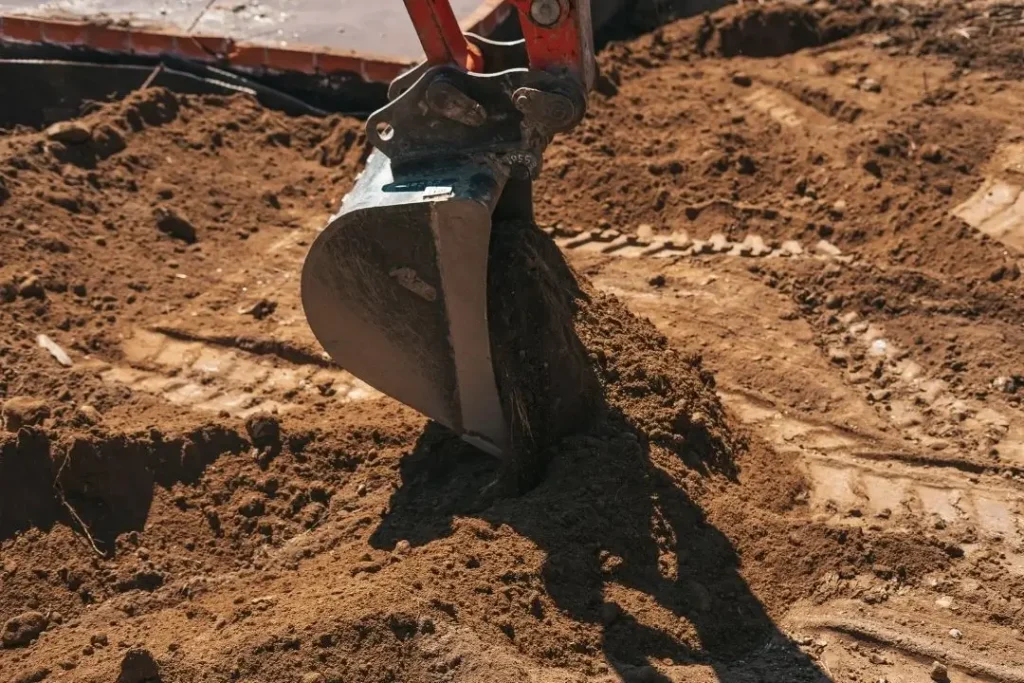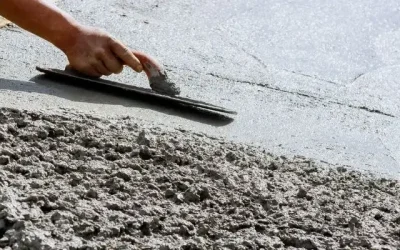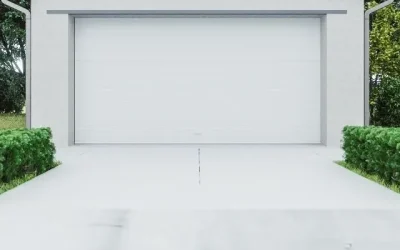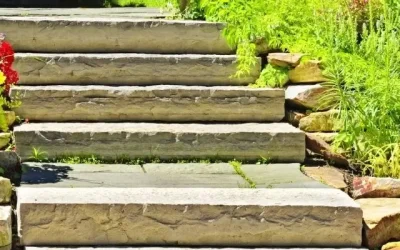Ever wondered why your neighbour paid one price for their new concrete slab, yet your quote came back significantly higher for a similarly-sized project? Many homeowners on Brisbane’s Northside assume concreting costs are mostly determined by the slab’s size, but that’s rarely the full story. Site access, soil conditions, slope, council requirements, and even weather can affect the final price, sometimes more than the size itself. Understanding these factors can help you compare quotes more fairly, plan your project more accurately, and avoid budget blowouts.
Factor 1: Site Accessibility
How easy it is to get equipment and materials to your site can make a big difference to your concreting costs. If the concrete truck can reverse straight into place and pour directly, you’ll likely pay less. But if access is limited, like if you’re living on a battle-axe block or your property has a narrow side path, your local Brisbane concreter might need to bring in extra equipment or workers just to reach the pour location.
Jobs with poor access often require concrete pumps, which add to the total costs. In tighter yards, concrete may have to be moved manually using wheelbarrows or with a small bobcat, which means more labour hours and machinery usage. But even in open suburbs, if you have a steep driveway or sloping backyard, these can complicate access and slow down the job.

Factor 2: Site Preparation Needs
Before any concrete is poured, the ground needs to be properly prepared and this step can vary a lot between properties. Sloping terrain, mature trees, and reactive clay soils are common in North Brisbane, so preparation can quickly become one of the biggest cost factors. Uneven ground may need to be excavated and levelled, while old slabs, thick tree roots, or garden structures might need to be removed before work can begin. Each of these tasks adds time, labour, and machinery costs, especially if the excavation material needs to be hauled off-site.
Soil conditions also play a big role. In areas with clay-heavy or blacksoil ground, such as Bald Hills or Albany Creek, proper compaction is essential to prevent cracking or movement later on. Your concreter might also recommend gravel bases, sub-surface drainage, or extra reinforcement depending on the site.
Factor 3: Labour and Material Rates
Concrete and labour prices aren’t set in stone. They shift depending on local demand, supplier schedules, and even the time of year. During busy building periods, like the lead-up to summer or after major storms, concrete plants often increase their rates due to high demand. This means the same job might cost more in October than it would in March. Shorter notice or weekend bookings can also bump up the price if the crew needs to work overtime or reschedule other jobs.
Labour rates vary based on availability and complexity. If your project is right on the outskirts of Brisbane high in Highvale or Mount Nebo, you may see a slight increase in travel-related costs. Urgent pours, limited site access, or specialty finishes may also require a large crew or more experienced tradespeople.

Factor 4: Concrete Type or Finish
What you choose for the concrete finish affects the final price. Plain concrete is the most common and most affordable option, but if you’re after something with more visual appeal, decorative finishes can increase the overall cost. Exposed aggregate is one of the most popular choices, offering a durable and visually appealing finish that suits many Brisbane homes. Other options include stamped patterns or concrete stencilling, which can also increase the price due to the extra materials, labour, and sealing involved.
These premium finishes often require specialised mixes, additional surface work, and extra sealing after the pour. For example, exposed aggregate involves washing off the top layer to reveal decorative stones, which adds time and labour. If you’re aiming for street appeal, the upgrade might be worth it, but it will increase total upfront costs, even if the slab dimensions are the same.
Factor 5: Slab Thickness
While slab size often gets the most attention, thickness can have just as much impact on the final cost. Thicker slabs need more concrete, stronger reinforcement, and more time to pour and finish. These are often required for driveways, carports, or parking pads where vehicles regularly sit. For light-use areas like patios or footpaths, a 100mm thick slab may be enough. But if the slab needs to support fully loaded utes, trailers, or boats, which is common in family homes or acreage blocks, you might be looking at 125mm or even 150mm thick concrete.

Factor 6: Reinforcement Requirements
Steel reinforcement is what gives your concrete slab strength and durability, but the type and amount needed can vary depending on the job. A small, non-structural slab might only require light mesh, but for anything under load, like a driveway or a slab on sloping ground, stronger mesh or rebar is essential. That’s especially true in areas with reactive clay soils, where ground movement can cause cracking if reinforcement is insufficient.
Concreters will factor in things like soil stability, site slope, and slab thickness when determining reinforcement needs. More steel means higher material costs and extra time to lay and tie it correctly before the pour.
Factor 7: Permits and Council Requirements
Some concreting jobs, especially those that connect to public property, need approval from the Brisbane City Council. If your project involves a new driveway crossover, footpath replacement or work near stormwater drains, a permit is likely required. This adds not just paperwork, but potentially application fees, inspections, and even traffic control, depending on the location and scope of work.
Factor 8: Weather and Timing
Brisbane’s subtropical climate plays a big role in concreting work, especially during storm season. Heavy summer rain, sudden downpours, or extended wet periods can delay pours, disrupt site access, and impact the finish of the concrete. If your job is scheduled during the wetter months, concreters may need to postpone work or take extra steps to protect the site, which can result in additional labour or equipment costs.

Hot weather can also be an issue. In suburbs with open yards and hard surfaces that can intensify heat, concrete may cure too quickly if not managed properly. This can affect the strength and appearance of the finish, especially with exposed aggregate or coloured concrete. In some cases, additives or water sprays are used to slow the curing process. These small adjustments can slightly increase material or labour costs.
While the weather can’t be controlled, it’s definitely something that experienced concreters plan for when quoting your job.
Final Thoughts
While slab size might seem like the biggest cost factor in a concreting quote, it’s often just the starting point. On Brisbane’s Northside, local soil conditions, site access, slab thickness, council rules, and even the weather all play a role in shaping the final price. That’s why two jobs with the same square metres on paper can vary so much in cost once you dig into the details. Before choosing a contractor or comparing quotes, it’s worth asking for a detailed breakdown. A good concreter will explain exactly what’s included, what your site needs, and how to avoid costly surprises later.
If you’re planning a concreting project on Brisbane’s Northside, it’s worth starting with a team that understands the area. Whether you’re in Albany Creek, Stafford Heights, Warner, or nearby, we’ll take the time to assess your site properly and provide a clear, all-inclusive quote tailored to your home and your needs. Contact us today by calling (07) 3132 3788 for a free, no-obligation quote.




